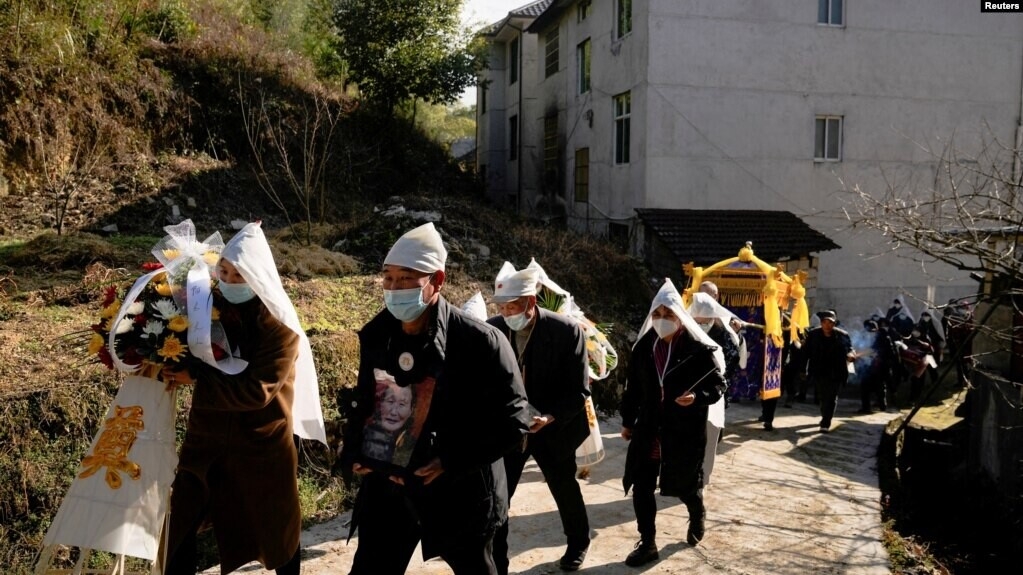In recent years, China has faced a series of scandals and social issues that have sparked widespread debate, but some of these problems, due to their sensitivity or broad implications, are quickly censored and suppressed. The “body trafficking scandal” that erupted in August 2024 is one such case. This incident, involving bio-material companies, funeral homes, and hospitals across several provinces, illegally traded and processed large numbers of corpses. As soon as the scandal was exposed, it triggered a massive outcry on the internet. Despite the authorities’ swift actions to censor information, this case reveals deep-seated issues within Chinese society and its legal system that demand serious scrutiny.
1. Overview of the Incident
On August 7, 2024, Yi Shenghua, a partner at Beijing Yongzhe Law Firm, blew the lid off a scandal that shocked the nation. According to Yi, a Shanxi-based bio-material company collaborated with multiple funeral homes to illegally purchase the bodies of individuals who had not died from illness. These corpses were then gruesomely dismembered, with some bones being turned into bio-materials for sale to hospitals. This revelation quickly spread across the internet, igniting widespread public outrage.
2. Involved Companies and Institutions
The main company implicated in the scandal is Shanxi Aorui Bio-materials Company, a firm with official ties, having been established 25 years ago by the China Institute for Radiation Protection. The indictment also names other entities, including Sichuan Hengpu Technology Co., Ltd., Qingdao University Affiliated Hospital in Shandong, Guilin Medical College, and crematoriums and funeral homes in Yunnan, Chongqing, Guizhou, and Sichuan. These institutions were all complicit in the illegal purchase and dismemberment of corpses, as part of a dark and profitable trade.

3. Legal and Ethical Dimensions
Under Chinese criminal law, theft and willful destruction of corpses are serious crimes, with offenders facing up to three years in prison. However, this case is not merely a legal issue—it exposes a profound ethical crisis. The companies involved, along with the hospitals that purchased these materials, have flagrantly violated basic moral principles, desecrating the dead and infringing on the rights of their families.
4. The Dark Supply Chain Behind the Scandal
The body trafficking scandal unveils a sinister supply chain, where bio-material companies, through illegal means, acquire corpses to manufacture medical products, which are then sold to hospitals and other medical institutions. This operation involves a tangled web of interests, spanning funeral homes, hospitals, and bio-material companies, forming an underground trade network that crosses provincial and industry lines.
5. Social Reaction and Public Outrage
Following the scandal’s exposure, the Chinese public, particularly online users, expressed shock and anger. Many commentators pointed out that this case not only highlights widespread issues within certain industries but also reveals a steady erosion of the nation’s moral compass. Prominent commentator Xiang Dongliang, writing on his WeChat public account “Basic Common Sense,” condemned the scandal as a chilling reflection of an ever-darkening social reality.
6. Official Response and Media Censorship
In the wake of the public outcry, the authorities swiftly mobilized to censor any related news and discussion. Reports from major media outlets were scrubbed, and social media discussion forums were purged, with even the “like” feature for related news posts being disabled. This unprecedented level of censorship underscores the government’s determination to control the narrative and suppress dissent.
7. China’s Policies on Cremation and Body Management
China has strict regulations regarding the cremation of bodies and the handling of ashes. However, loopholes and enforcement issues have led to a backlog of unclaimed bodies in funeral homes, which cannot be cremated without proper documentation. This situation creates an opportunity for illegal activities such as body trafficking. A report from Phoenix News pointed out that these backlogged bodies are especially vulnerable to illegal appropriation, a method central to the operations of Shanxi Aorui.

8. The Bio-material Industry’s Dark Side
Shanxi Aorui is far from an outlier in China’s bio-material industry. As demand for medical products increases, so does the market for bio-materials. However, in this rapidly expanding industry, lax regulation and the relentless pursuit of profit have given rise to horrifying practices like those uncovered in this scandal. A report from Caixin revealed that Aorui is a well-known name in the industry, but its “reputation” masked the dark and illegal operations behind its success.
9. Social Responsibility and Ethical Reflections
This scandal is not just a legal issue but a profound challenge to societal ethics. Companies, hospitals, and funeral homes, as providers of public services, should be held to high standards of social responsibility. However, their actions in this case grossly violated fundamental ethical norms, undermining the moral fabric of society.
10. Impact on China’s Healthcare System
The exposure of this scandal has had a significant impact on China’s healthcare system. The public has begun to question whether hospitals have adequate oversight mechanisms in place when sourcing bio-materials and whether these materials are obtained through legitimate means. This case exposes potential vulnerabilities and corruption within the healthcare system, forcing relevant authorities to reexamine and strengthen regulations.
11. Government Response Measures
In response to the scandal, the government quickly implemented a series of measures. In addition to prosecuting those involved, authorities launched a nationwide investigation into the bio-material industry, aiming to curb similar activities through stricter laws and administrative actions. At the same time, efforts are being made to enhance oversight of the funeral industry, particularly in the management of bodies, to prevent illegal trading.
12. Rebuilding Public Trust
This scandal has severely damaged public trust in the healthcare system and related industries. Rebuilding this trust will require not only government efforts but also the active participation of all sectors. The public expects to see more transparent and responsible corporate behavior, as well as more rigorous regulatory measures.
13. The Role of Media in the Incident
Although media reports were quickly deleted, their initial investigative efforts played a crucial role in the early stages of the scandal. Media outlets delved into the details, providing the public with vital information and fueling public outcry. However, in an increasingly censored environment, the challenge for the media is how to balance truth-telling with survival when reporting on sensitive topics.
14. The Social Impact of the Body Trafficking Scandal
This case is not just a legal issue; it also highlights the ethical dilemmas China faces in its rapid modernization. As economic interests drive decisions, traditional moral values are being cast aside, and social values are coming under strain. This scandal serves as a stark reminder of the need to preserve respect for life and uphold moral standards in a society undergoing fast-paced change.

15. Future Outlook and Reflections
The body trafficking scandal has undoubtedly served as a wake-up call for China. The key to the future lies in strengthening oversight to prevent similar incidents from occurring. At the same time, this case prompts society to rethink the relationship between law and ethics. Only by respecting ethical principles within the framework of the law can a more just and harmonious society be built.
Conclusion
The exposure of the body trafficking scandal and the ensuing discussions have unveiled the deep conflicts between economic interests and ethical principles in Chinese society. Despite the swift and severe censorship by authorities, public reflection on this incident will not be silenced. This case is not merely a legal matter; it is a profound challenge to the moral boundaries of society. Through this incident, all sectors of society must work together to improve the system and restore moral integrity, ensuring that fairness and justice prevail.
